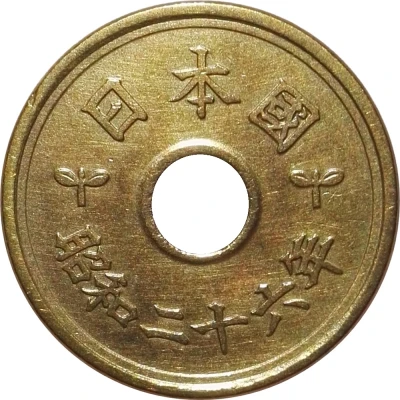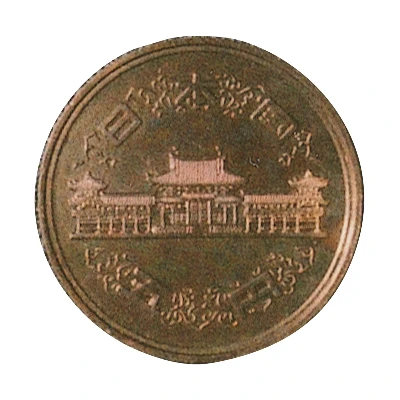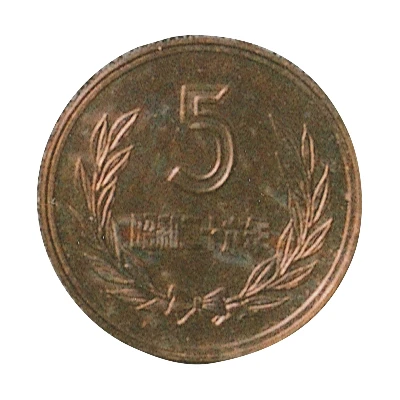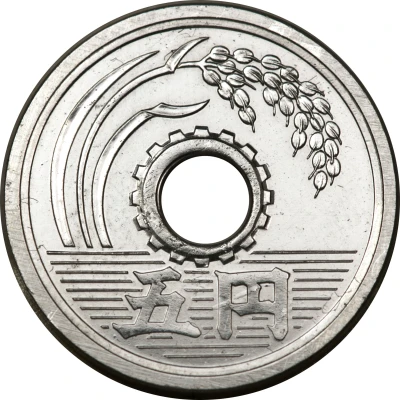
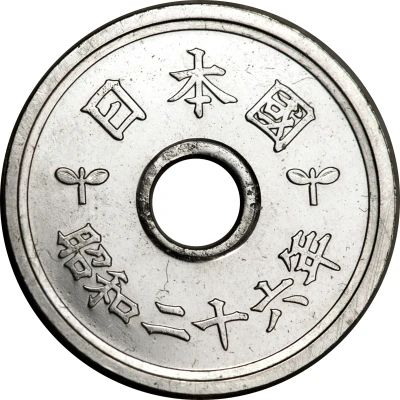

© Heritage Auctions
5 Yen - Shōwa Kaisho style
26 (1951) year| Aluminium | - | - |
| Issuer | Japan |
|---|---|
| Emperor | Shōwa (1926-1989) |
| Type | Pattern |
| Year | 26 (1951) |
| Calendar | Japanese - Shōwa era |
| Value | 5 Yen (5 JPY) |
| Currency | Yen (1871-date) |
| Composition | Aluminium |
| Shape | Round with a round hole |
| Technique | Milled |
| Demonetized | Yes |
| Updated | 2024-10-05 |
| Numista | N#27221 |
|---|---|
| Rarity index | 87% |
Reverse
Hole in center flanked by seed leaf, authority on top and date below
Lettering:
日本國
昭和二十六年
Translation:
State of Japan
Year 26 of Shōwa
Edge
Plain
Interesting fact
The Pattern 5 Yen - Shōwa (Kaisho style) 26 (1951) coin was designed by Japanese artist and engraver, Shōno Eiichi (1881-1971). Shōno was a renowned artist and engraver who was known for his work on various coins and banknotes in Japan, including the design of the 1 yen coin, which was introduced in 1948. The Pattern 5 Yen - Shōwa (Kaisho style) 26 (1951) coin features a portrait of Emperor Hirohito on the obverse side, while the reverse side features a stylized chrysanthemum, which is a symbol of longevity and good fortune in Japanese culture. The coin was minted in aluminum, which was a relatively new material for coins at the time, and it has a unique and distinctive design that sets it apart from other coins in the Shōwa series.
